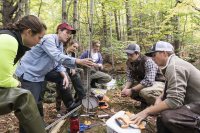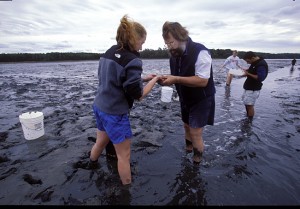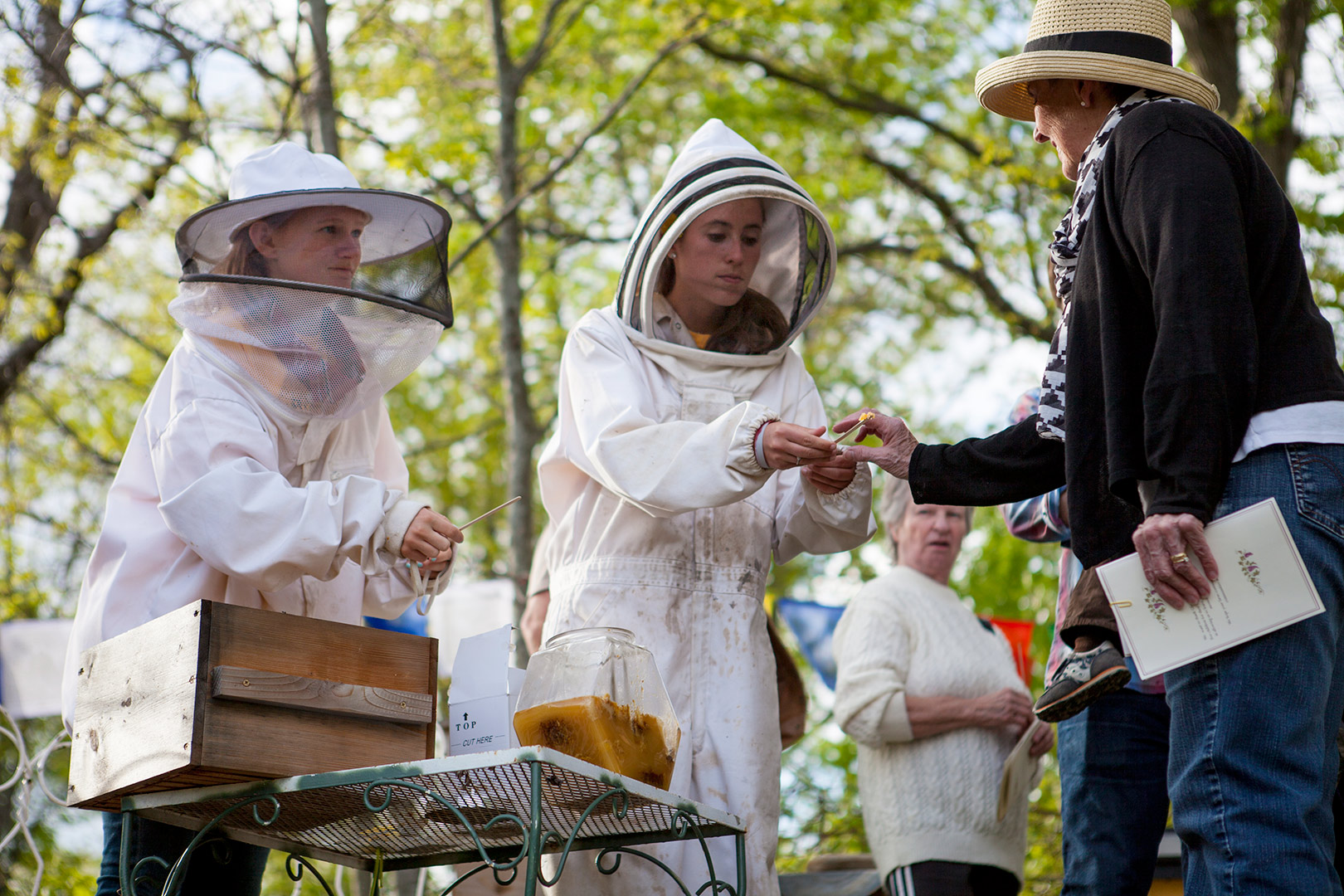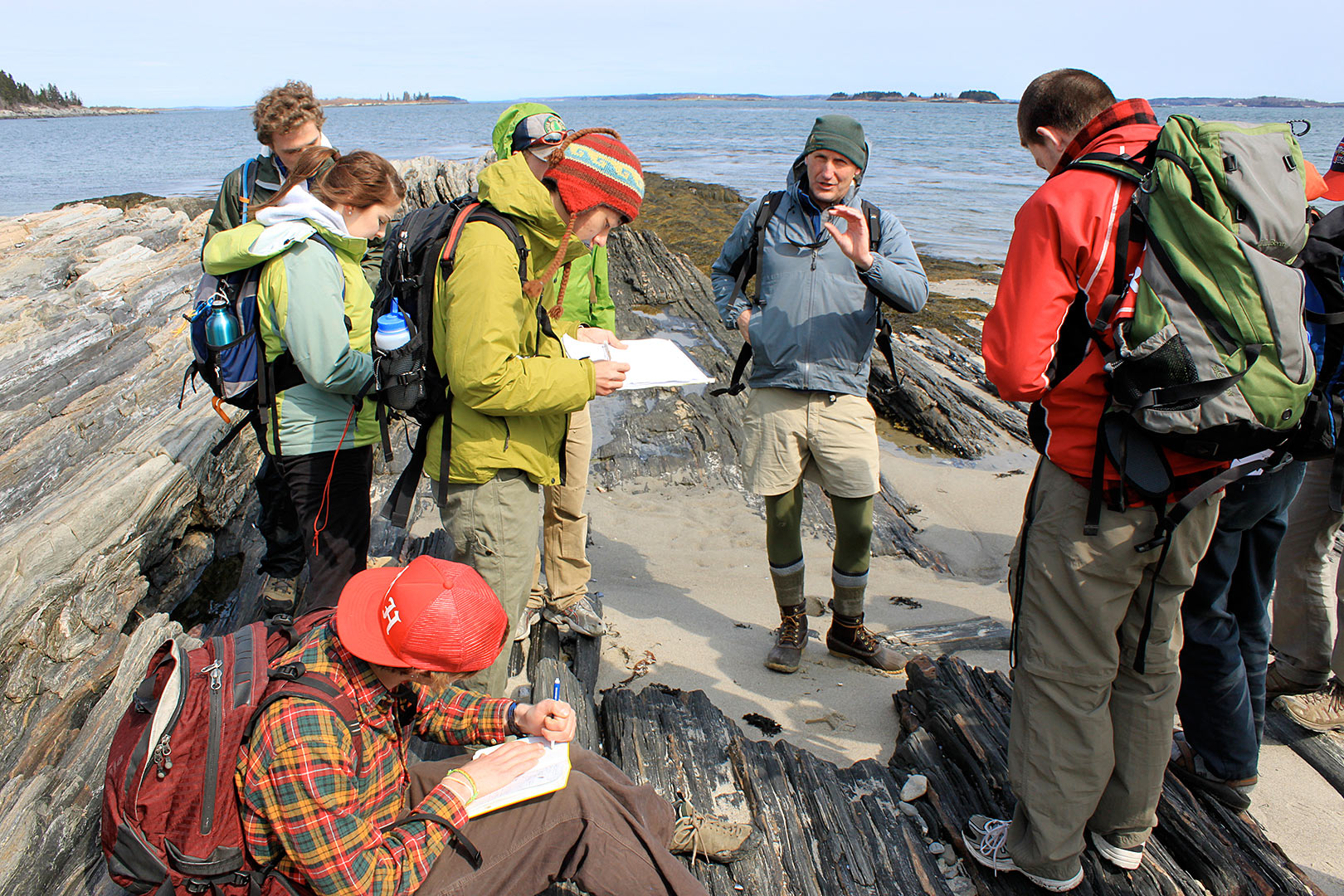
Bangor Daily News quotes biologist Ambrose in story on worm digger dispute

Greg Anderson, an assistant in instruction in biology, works with a student doing field work on a Brunswick mudflat of the kind that’s occasionally closed to clam harvesters for conservation reasons. Photograph by Phyllis Graber Jensen.
Historic friction between two marine fisheries groups is playing out once again in Maine, where proposed legislation would give coastal towns the power to prohibit bloodworm digging in areas closed to clam harvesting.
Occasionally, a Maine town will close a flat to allow younger seed clams to mature. Currently, such closures doen’t apply to worm diggers.
The proposed legislation assumes that seeded flats need to be protected from both clam and worm digging, an assumption that riles worm diggers.
“Somebody is always trying to get us kicked out of their town,” said worm dealer Phil Harrington during a recent meeting in Brunswick to discuss the legislation.
Bates marine biologist Will Ambrose tends to side with the worm diggers, telling Bangor Daily News reporter Beth Brogan that the “impact worm digging has on clams has probably been overstated.”
Ambrose tells the BDN that according to his and his students’ research, not a lot of clams are “impacted to the point of death by worm digging.”
He also points to research by colleague and collaborator Brian Beal, a marine ecologist at the University of Maine, that specifically looks at how worm digging affects young clams. Beal concludes that “blood wormers should continue to harvest commercially from areas closed to shellfishing without reprisal or fear that they are causing damage to populations of juvenile soft-shell clams.”
“I’m surprised somebody hasn’t been shot over this.”
The hostility between the two digging groups, Ambrose adds, “goes back to at least 1979…because these groups do not mix, for a whole variety of reasons: socioeconomic, geopolitical — they just don’t get along. I’m surprised somebody hasn’t been shot over this.”
In 2005, environmental studies major Eben Sypitkowski ’05 spent time with worm diggers while doing his honors thesis on bloodworm digging.
He described for Bates Magazine the offbeat culture of the hardy yet disenfranchised worm diggers, and how there’s enviable talent in being able to “keep your butt to the wind and your hoe in the mud when your back is killing you.”




